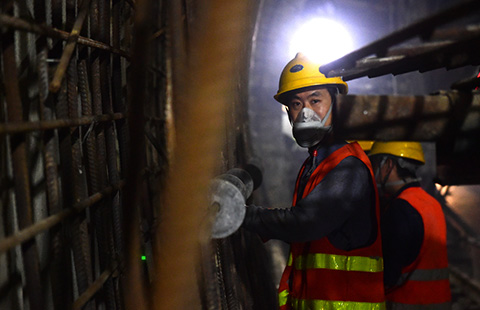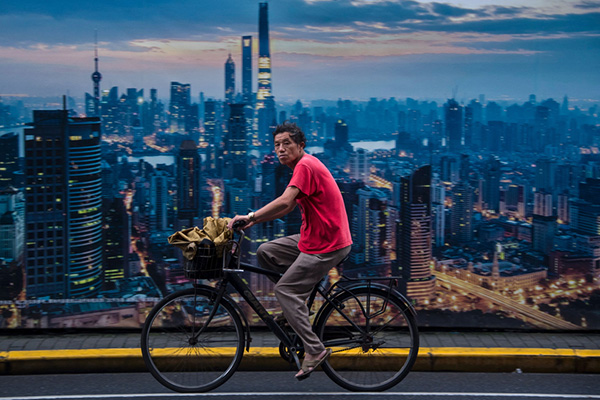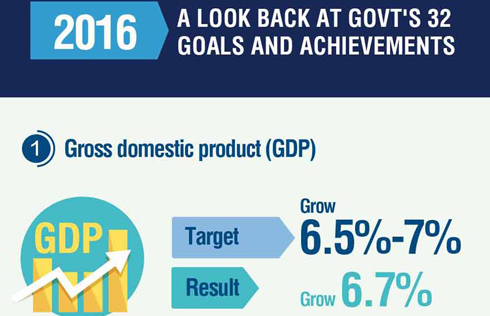Xi's political economy renews modernization drive
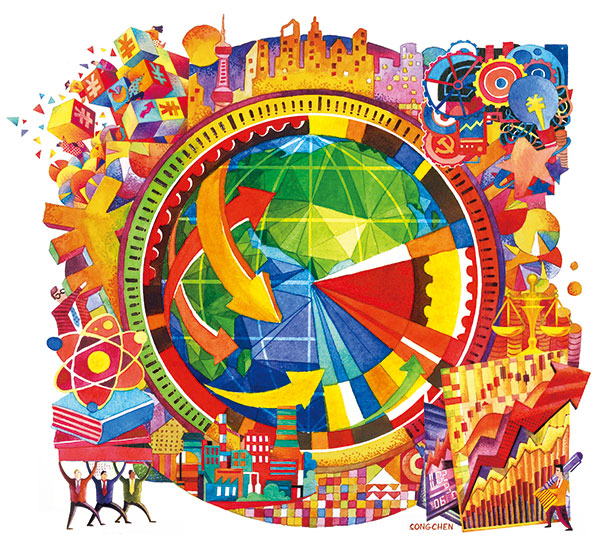
President wins nation over with his confident demeanor, Xinhua reports.
More than four years after he promised a great renewal of the Chinese nation-while ensuring that the country stands tall in the world and the Communist Party of China conducts its affairs with strict discipline-President Xi Jinping's insights into the country's political and economic development are revitalizing the national modernization drive.
When Xi appeared in front of the media at the Great Hall of the People in Beijing on Nov 15, 2012, following his election as the Party's top leader, his confident demeanor and admission of challenges, such as corruption within the Party, pointed to changes ahead.
"We are not complacent, and we will never rest on our laurels," he told the nation in a televised address, after praising past achievements.
More than 1,500 days into his leadership, Xi has successfully imbued the country's political and economic governance with his own thinking.
Xi, general secretary of the CPC Central Committee and chairman of the Central Military Commission, spearheaded a popular anti-corruption drive that has exposed a long list of fraudulent officials, from low-ranking "flies" to high-ranking "tigers".
Last year, a report in The Wall Street Journal said that during the campaign, which has netted more than 1 million officials since late 2012, Xi has called for greater checks on political power, creating a "cage of regulations" that ensures cadres "dare not, cannot and do not want to" be corrupt.
He has also publicly defended free trade against a backdrop of weak growth momentum in major economies and rising trade protectionism, and managed to sustain the world's second-largest economy on the track of fast growth.
Last year, China's GDP grew by 6.7 percent to 74.4 trillion yuan ($10.8 trillion), making the country the fastest-growing major economy in the world.
Xi has also taken a quantum leap in leading China's participation in global governance, guiding the ancient civilization back to the center of the world stage.
"By 2016, a broad swath of Americans had begun to feel the effects of China's development in their everyday lives-in shopping malls, at the multiplex, in paychecks-and to sense that the center of global power might be shifting from the United States toward China," Robert Daly, director of the Kissinger Institute on China and the United States, wrote earlier this year.
Later, in the magazine Foreign Policy, he wrote: "In 2016, China's big plans may have begun to tilt the balance."
Hu Angang, director of the center for China studies at Tsinghua University in Beijing, attributed the country's political and economic achievements to new governance insights provided by the latest generation of leaders.
"China's most important accomplishment since the 18th CPC National Congress rests on the success in strategic policymaking, which constitutes the essential reason for China's achievements," Hu said.
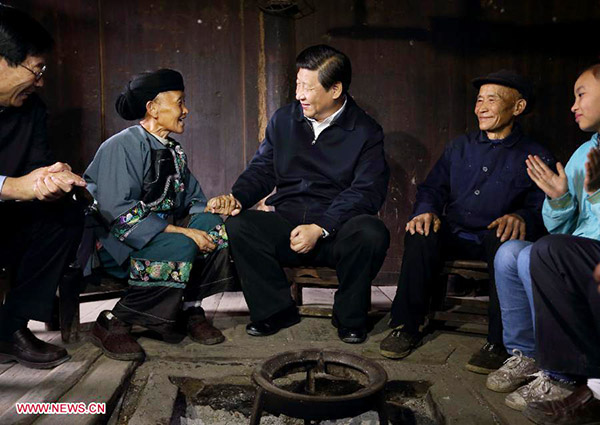 |
|
Chinese President Xi Jinping talks with family members of Shi Qiwen, a villager at Shibadong village in Paibi township of Huayuan county in the Tujia-Miao autonomous prefecture of Xiangxi, central China's Hunan province, Nov 3, 2013. [Photo/Xinhua] |
Changing world
Liu Shangxi, director of the Chinese Academy of Fiscal Sciences, said the advent of the new century saw human civilization usher in a new era distinguished by the declining efficiency of Western countries in terms of economics, society and systems.
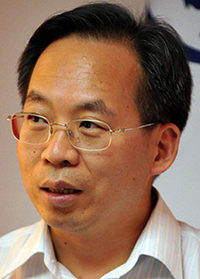 |
|
Liu Shangxi, director of the Chinese Academy of Fiscal Sciences. [Photo provided to China Daily] |
"Conversely, emerging countries such as China, with their growing influence, are eager to find an independent path of sustainable development," he said.
Although China's development comes during a period of strategic opportunity, the national economy is facing complex external and internal environments.
Externally, people are concerned about sluggish recovery, a lack of growth momentum, weak trade and investment, and a backlash against globalization.
In the aftermath of the 2008 financial crisis, the global political and economic order, as well as Western social and economic development models, fell short in formulating a viable solution to the crisis. As a result, the problems have still not been fundamentally resolved.
Internally, China's decades-long reform drive is at a crossroads amid the pressing need for a transition in the country's growth model.
Globally, policymakers and researchers in both developed and developing countries are beginning to search for new governance concepts and theories in the hope of building a new international political and economic order, as well as new models of economic and social development.
To that end, China has put forward two centenary goals, pegged to the 100th anniversaries of the CPC and the People's Republic of China, and the Chinese dream of great national renewal.
Liu believes the two goals and the Chinese dream not only embody the demands the Chinese people place on the ruling party, but have also started the nation on a voyage to search for a new path for mankind.
Tian Yingkui, a professor at the Party School of the CPC Central Committee, highlighted the role of the CPC Central Committee, with Xi Jinping as the core, in developing "political economic" theories with Chinese characteristics.
"Based on the CPC's long experience of governance and theoretical confidence, the Party applied Marxist political economy to guide the drive to build a well-off society, and also developed Marxism," Tian said.
During the past four years, a number of developmental approaches have been devised, including the concept of innovative, coordinated, green, open and shared development, the market's decisive role in resource allocation, the new normal and supply-side structural reform.
These theories, which suit both China and the times, have created gateways to realizing the Chinese dream of rejuvenation, he added.
With its mastery of advanced theories, the CPC Central Committee has outlined a strategic blueprint called the "Four Comprehensives", which refers to comprehensively building a moderately prosperous society, comprehensively deepening reform, comprehensively advancing the rule of law and comprehensively governing the Party strictly.
In 2013, the third plenary session of the 18th CPC Central Committee featured a comprehensive reform package covering 60 tasks and more than 300 reform measures. The Central Leading Group for Deepening Overall Reform has held 32 meetings in the last three years to chart the framework for further reforms.
The blueprint for rule of law, set by the fourth plenary session in 2014, has put forward the fundamental tasks and a pathway to fully advance the rule of law.
In 2015, the fifth plenary session adopted the 13th Five-Year Plan (2016-20), mapping out measures to achieve the goal of building a moderately prosperous society in all respects and putting forward the five new development concepts.
Hu, from Tsinghua University, believes that the measures initiated by the plan will lay the groundwork for the nation's goal of becoming a modern socialist country that is prosperous, strong, democratic, culturally advanced and harmonious in time to mark the centenary of the People's Republic of China in 2049.
Last year, at the sixth plenary session of the 18th CPC Central Committee, two documents related to Party discipline, including the norms of political life within the Party under the new conditions and a regulation on intra-Party supervision, were approved.
Since the 18th CPC National Congress in 2012, the progress made in the Party's fight against corruption has won the confidence of Party members and the public.
By netting both "tigers" and "flies," pushing forward reforms with the anti-graft system and seeking international cooperation, the fight against corruption has gained "crushing momentum".
Between 2013 and September, disciplinary inspection agencies at all levels investigated more than 1 million suspected violations and about 1 million CPC members were punished for violating the rules.
The four plenary sessions of the 18th CPC Central Committee opened a new chapter and drew up a new blueprint for the country's comprehensive development, revealing China's effectiveness and strong will in governance, according to Hu, of Tsinghua University.
He noted that China is now playing a bigger role in the global governance system and promoting international relations and cooperation.
The ongoing efforts include devising a new mode of relations between China and the United States, implementing the Belt and Road Initiative to link Europe, Asia and Africa, an emphasis on neighborhood diplomacy and vigorous participation in global governance.
Through the APEC Beijing summit in 2014, the UN Sustainable Development Summit in 2015 and the G20 Hangzhou summit in September, Xi has played a responsible and irreplaceable role in the relevant fields.
At a group study session of the Politburo of the CPC Central Committee, Xi said taking part in the global governance system will allow China to work to make the system more just and reasonable, and create a better environment for the country's development and for world peace.
Achievements
China's overall approach to building socialism with Chinese characteristics-that is, the promotion of coordinated economic, political, cultural, social and ecological progress-has been proved effective during the past four years.
The global economy is troubled by sluggish recovery, flagging international trade, a measure of backsliding on globalization and weak growth momentum in major economies.
By contrast, China's economic growth, although slowing, is still one of the highest in the world and continues to power global growth.
By 2020, China aims to quadruple its GDP from the level in 2000. Last year, in terms of stable prices, GDP was more than four times higher than in 2000, meaning the country met the 2020 goal ahead of schedule, Hu said.
Chen Dongqi, an economist with the Academy of Macroeconomic Research at the National Development and Reform Commission, said: "It's important that this was achieved through China's voluntary structural adjustment and forceful promotion of supply-side structural reform, meaning it is of higher quality."
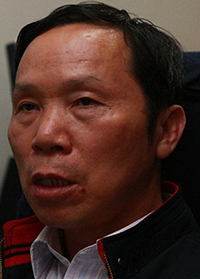 |
|
Chen Dongqi, economist with the Academy of Macroeconomic Research at the National Development and Reform Commission. [Photo provided to China Daily] |
He estimated that China will be home to about 440 million middle-class households once the country realizes its goal of building a moderately prosperous society in all respects by 2020. "There is great consumption potential to be tapped in China," he said.
In terms of political development, efforts have been made to introduce new rules and systems to advance the rule of law, reform administrative institutions, improve the people's congress system-China's fundamental political system-and promote consultative socialist democracy.
The country has also built the world's largest modern public cultural system. In 2015, broadcasting and TV programs covered more than 98 percent of the population, while public libraries, cultural centers and museums received nearly 2 billion visitors.
Quality of life has also improved markedly, with the average per capita growth rate of incomes for urban and rural residents standing at 7.7 and 9.6 percent respectively between 2011 and 2015.
Meanwhile, average life expectancy reached 76.34 years in 2015, compared with 74.83 years in 2010.
In a major ecological achievement, China is gradually decoupling its economic growth from heavy consumption of resources and the subsequent pollution.
In 2015, industrial water consumption fell by 7.8 percent from the figure in 2010, while agricultural water consumption was 1.8 percent lower than during the peak year of 2013.
Energy use per unit of GDP was cut to 7.007 megajoules in 2015, close to the average level in middle- and high-income countries.
"China's overall approach to modernization has produced major achievements since the 18th CPC National Congress in 2012, lifting the comprehensive national strength to a new level," Hu said.
Championing globalization
Amid attempts to blame globalization for hampering sustained economic growth and security, and even attempts to reverse the trend, China has defended globalization, implemented reforms to better cope with it and tried to chart a course forward.
"Whether you like it or not, the global economy is the big ocean you cannot escape from. Any attempt to cut off the flow of capital, technologies, products, industries and people between economies, and channel the waters in the ocean back into isolated lakes and creeks is simply not possible. Indeed, it runs counter to the historical trend," Xi told the World Economic Forum in Davos, Switzerland, in January.
The right thing to do is to seize every opportunity that economic globalization brings, work with one another to address every challenge it poses, and chart the right course, he said.
According to Zhang Youwen, director of the institute of world economy at the Shanghai Academy of Social Sciences, in recent years, the CPC Central Committee has coped effectively with challenges through the guidance of the sinicized Marxist political economy, structural adjustment and internal reforms.
The central leadership has valued independent pursuit of innovation and innovation-driven development, comprehensively deepened reform to cultivate new engines of development, striven to build the CPC into a better ruling party, built a service-oriented government and improved government regulation of the market, Zhang said.
Since the 18th CPC National Congress in 2012, the CPC Central Committee has led the country along a path of innovative, coordinated, green, open and shared development, centered on improving the quality and benefits of development, with the market playing a decisive role in resource allocation and the government's role brought into full play.
The central leadership has expedited the implementation of an innovation-driven development strategy, pushed forward supply-side structural reform, placed work related to agriculture, farmers and rural areas high on the agenda, and promoted people-centered urbanization.
"Over nearly 40 years, China's reform and opening-up policy has proved that development and reform are the cardinal principles for resolving every problem," said Huang Weiping, a professor at Renmin University of China.
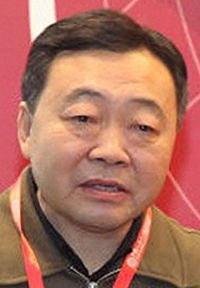 |
|
Huang Weiping, a professor at Renmin University of China. [Photo provided to China Daily] |
China has set an example for the world in this regard by not attributing problems to others, but reforming itself with the spirit of enterprise to adapt to changes, Huang said.
Common prosperity
According to Liu, of the Chinese Academy of Fiscal Sciences, in the past three or more decades, market reforms-mainly adjusting the relationship between government and the market-have built China into the world's second-largest economy. "It's like a human being having grown physically, but who is still in need of a healthy mentality and mature spirit," he said.
Liu believes that social reform should become an important part of the overall reform agenda. He stressed that economic, political, cultural reforms and ecological construction can only go forward when social reform improves, and that deepening social reform means pursuing socialist common prosperity and combining the market economy with common prosperity.
In his view, China's ability to lead civilization in the 21st century hinges on whether the country can realize common prosperity by letting the well-off help those who lag behind.
Hu, from Tsinghua University, echoed Liu's view, saying a society that features common prosperity will be characterized by common development, sharing the results of development and eliminating poverty.
China's pursuit of a commonly prosperous society has been reflected in the international arena, he said, adding that the nation and other countries form a community of shared interests and a shared future.
In the past three years, China has shared the experience of capital, technology and poverty-alleviation it has gained from the globalization process with other developing and underdeveloped countries through the Belt and Road Initiative and the establishment of the Asian Infrastructure Investment Bank, Hu said.
As Xi told the WEF meeting at Davos: "We are not jealous of other people's success, and we will not complain about others who have benefited so much from the great opportunities presented by China's development. We will open our arms to people from other countries and welcome them aboard the express train of China's development."








